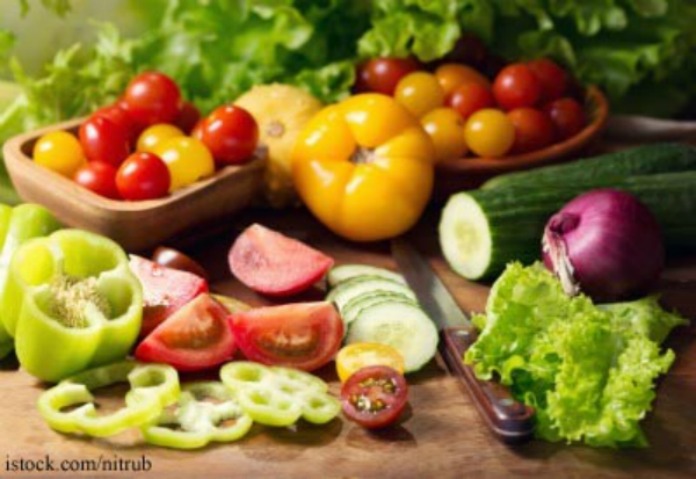Summer is a time when everyone enjoys eating more fresh produce. But there have been many foodborne illness outbreaks in the past few years linked to fresh fruits and vegetables. Some of the pathogens in those outbreaks include Salmonella, E. coli, Listeria monocytogenes, and cyclospora.

The FDA is offering tips to help you choose and serve fresh produce safely. Harmful bacteria can be in the irrigation water used in the fields. Animals can poop on the plants, transferring pathogenic bacteria onto the fruits and vegetables. Product can also be contaminated during harvest, processing, or transport.
When you buy produce, always choose products that are not damaged, cut, or bruised. Those injuries are open doorways to pathogens. Once the pathogens are inside the fruit or vegetable, you can’t wash them off. When you buy precut fruit or vegetables or bagged produce, make sure they are refrigerated or surrounded by ice. And bag those items separately from raw meat, poultry, and seafood at the checkout counter.
Raw fresh produce must also be stored to prevent cross-contamination and bacterial growth. Always store perishable fruits and vegetables such as lettuce, herbs, mushrooms, and strawberries in a clean fridge at a temperature of 40°F or below. Refrigerate all produce that is purchased pre-cut or bagged.
Always keep fruits and vegetables that you will eat uncooked away from raw meat, poultry, and seafood. Use separate utensils to prepare these foods, and always wash utensils, cutting boards, plates, and your hands after they come into contact with raw meat, seafood, and poultry. If you use plastic or non-porous cutting boards, clean them in the dishwasher.
Always wash your hands thoroughly with soap and water for at least 20 seconds before and after food preparation. Cut away damaged or bruised areas on fresh fruits and veggies. Wash all produce thoroughly under running water, including that bought at a farmers’ market or grown at home. Don’t use soap, detergent, or commercial produce washes.
Wash these foods even if you don’t eat the skin. Bacteria can be transferred from the skin to the flesh when peeling or cutting. Scrub firm produce such as cucumbers and melons with a clean produce brush before preparing. Dry produce with a clean paper towel or cloth towel to further remove bacteria.
Pre-washed, pre-cut, bagged, and packaged produce items are ready to eat. Experts recommend that you don’t wash them further, because they may be re-contaminated with bacteria in your sink.
And don’t eat raw sprouts. Sprouts are grown from seeds and beans under conditions that are perfect for bacterial growth. There have been many food poisoning outbreaks in the past few years linked to raw sprouts. Children, the elderly, pregnant women, and people with chronic illnesses or weakened immune systems should never eat raw sprouts. Cooking sprouts thoroughly is the only way to kill dangerous bacteria and reduce the chance of food poisoning.
Eating food contaminated with pathogenic bacteria will cause illness within one to three days. But some bacteria, such as Listeria monocytogenes, can cause illness 70 days after exposure. Symptoms of food poisoning include vomiting, diarrhea, abdominal pain, fever, headache, or muscle aches. If you do experience these symptoms, see your doctor.




